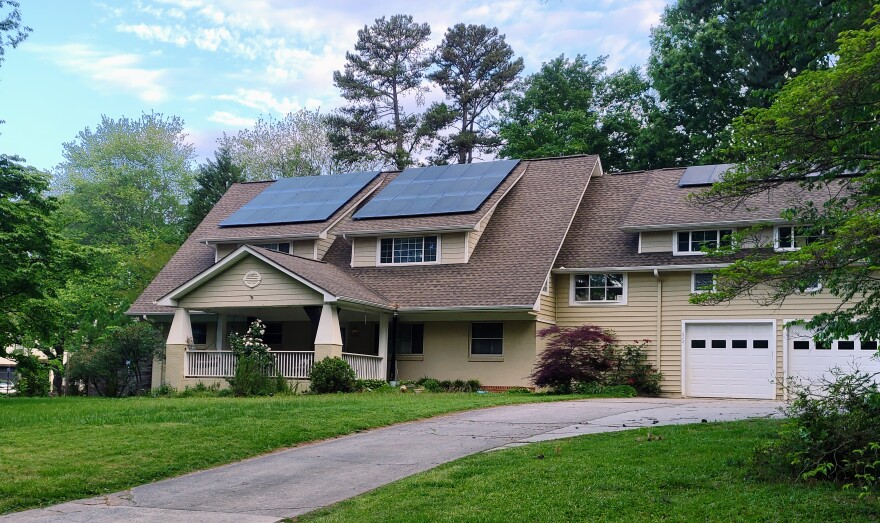The State Court of Appeals upheld state regulators’ decision to approve Duke Energy’s net metering rates for rooftop solar.
State regulators approved Duke’s revised net metering rates in March 2023. They took effect in October, following a three-month delay.
Duke Energy compensates customers for the energy they generate and return to the grid. The new rates are lower since the utility no longer pays what it costs customers to buy the energy, but what Duke Energy pays utility-scale operations to generate it. The utility also added a $10 charge to customers’ bills to distribute the cost of maintaining the grid.
Duke Energy has said the previous rates meant other customers were subsidizing solar owners.
The North Carolina Public Staff, which represents energy customers, reviewed information provided by the utility and found that the new rates would more than double the monthly energy bills for residential solar customers.
“Change in rates diminished the economic benefits of a solar investor,” said Jim Warren, executive director of NC WARN.
Warren said the lower net-metering rate has raised the “pay-back period” for solar installations, or how long it takes a homeowner to make their money back on their investment. When homeowners install home solar and battery systems, they draw less energy from Duke Energy. The utility relies, in part, on the combustion of fossil fuels to generate electricity which is the primary driver of climate change.

Environmental groups, including the Environmental Working Group and NC WARN, and one Duke Energy customer appealed the state regulators’ decision to the North Carolina Court of Appeals. In court, the appellants argued that state regulators violated the law by not issuing an independent study of rooftop solar’s costs and benefits before approving Duke Energy’s net metering rates.
The court ruled Tuesday that the state utility commission had fulfilled its duty to investigate the cost and benefit of rooftop solar, finding “the record contains competent, material, and substantial evidence to support the Commission’s findings as to the costs and benefits of customer-sited generation …”
“The court made a significant blunder by ignoring state law that clearly requires regulators conduct an independent cost-benefit analysis, instead of relying solely on Duke’s own calculations,” wrote Caroline Leary, general counsel for the Environmental Working Group, in a press release following the court’s decision.
The appellants have not decided whether they’re going to appeal the court’s decision to the N.C. Supreme Court.
“No one would argue with a straight face that this is good for the growth of the industry,” Warren said. “Rooftop solar is the fastest and cheapest way for North Carolina to get off fossil fuels.”



